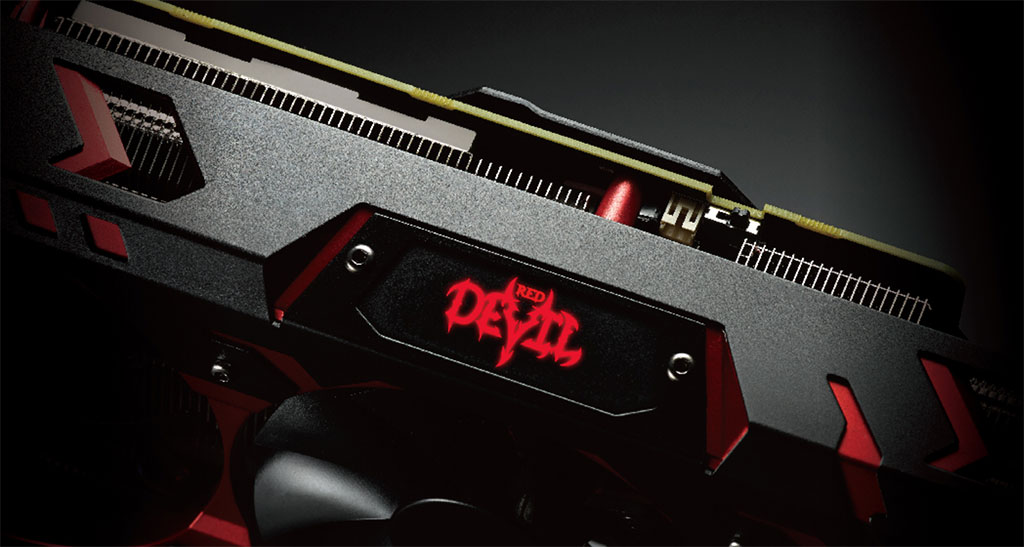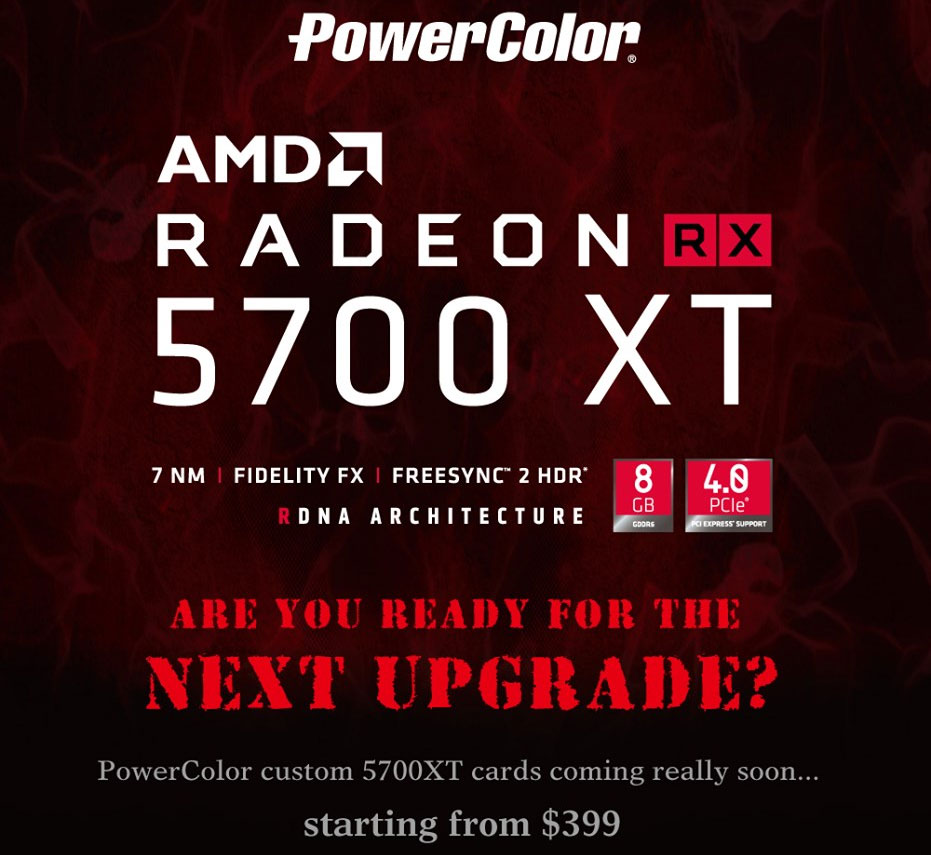Custom Radeon RX 5700 XT cards will start at $399, same as reference models
They should start arriving in retail in a couple of weeks.

In case there was any doubt, custom Radeon RX 5700 XT cards will start at the same price as reference models, which is $399. PowerColor confirmed as much in a Facebook post, in reference to its own custom 5700 XT models that are en route to retail.
Pricing will almost definitely shake out in similar fashion for custom 5700 (non-XT) cards as well, compared to reference designs, which start at $349. Officially, however, only custom 5700 XT models have been confirmed to start at the same price as reference variants.

"Are you ready for the next upgrade? PowerColor custom 5700 XT cards coming really soon...starting from $399," PowerColor states.
PowerColor is highly unlikely to be alone in offering custom models starting at the same price as reference SKUs. Of course, pricing will vary by model, with overclocked models wielding higher end components historically commanding a premium.
As it relates to PowerColor, its Red Devil cards typically go all out with factory overclocks, robust cooling solutions, components designed to deliver clean and stable power, and LED lighting. I'd be shocked if the 5700 series did not get the Red Devil treatment, but we will have to wait and see.
Both the 5700 XT and 5700 are some of the best graphics cards for gaming, depending on what you're after. Up to this point, however, the only versions available are those that stick to AMD's stock clocks and reference blower-style coolers. These have the advantage of escorting hot air directly out of a case's rear expansion port(s), but I've found that axial-fan coolers typically do a better job at cooling the GPU, and are sometimes quieter to boot. That's provided you own a case with good airflow, so you don't end up just circulating hot air inside your PC.
AMD has said that its hardware partners will have custom cards available around the middle of August. It remains to be seen how many will land on retail shelves in a couple of weeks, though. Asus, for example, recently said it would provide "more details in September."
The biggest gaming news, reviews and hardware deals
Keep up to date with the most important stories and the best deals, as picked by the PC Gamer team.
As literal points of reference, here are the stock clocks of the 5700 series:
- 5700 XT: 1,605MHz base, 1,905MHz boost, 1,755MHz game frequency
- 5700: 1,465MHz base, 1,725MHz boost, 1,625MHz game frequency
Both models also sport 8GB of GDDR6 memory at 14Gbps, which could be subject to a factory overclock as well. Typically, though, companies focus more heavily on GPU clocks.
Paul has been playing PC games and raking his knuckles on computer hardware since the Commodore 64. He does not have any tattoos, but thinks it would be cool to get one that reads LOAD"*",8,1. In his off time, he rides motorcycles and wrestles alligators (only one of those is true).


